Inside: Do you know that playing a musical instrument is the only thing we do that exercises the entire brain at once? Here are 6 music programs that will build your brain and will improve learning in all children. If you’re looking to strengthen the auditory, visual, and motor cortices of the brain…here’s what you need to do.
Music Programs that Will Build Your Brain
If you are looking for music programs that will build your brain consider taking music lessons. Nothing beats music lessons for strengthening your child’s brain while helping them retain information learned in school.
As stated in previous blogs, music is the only activity we do that exercises the entire brain—left, right, front, and back portions—simultaneously. Here are 6 music programs that will help and support this process.
Music Programs that Will Build Your Brain
Music lessons usually mean your child is learning a musical instrument and taking traditional lessons from a private teacher.
Music programs can mean several different things:
- Your child is learning a musical instrument using a specific method (Suzuki) taught by a private teacher or in a group.
- Your child is engaged in different aspects of music (singing, movement, rhythm instruments, etc.) under the umbrella of a particular music program (Let’s Play Music, Orff-Schulwerk, etc.). These are usually taught in group settings.
Participation in many of these programs usually starts at 18 months. Some are mommy-and-me. The emphasis is on musical games, stories, singing, and movement. As the child gets older, lessons become more sophisticated as they learn to read notes, understand intervals, and notation, or learn how to compose music.
Children involved in music are better at reading, writing, math, language arts, spelling, vocabulary, and memorization because music builds the three areas of the brain necessary for learning:
- auditory cortex
- visual/spatial cortex
- motor cortex
Let’s look at how music supports these areas of the brain and increases learning.
Brain-builder #1: Auditory Cortex
Scientists know that learning a musical instrument strengthens the auditory cortex thereby making it easier for your child to
- read
- listen
- understand speech and language
- learn vocabulary words
Music Programs that Target Auditory Learning: Kodaly & Suzuki
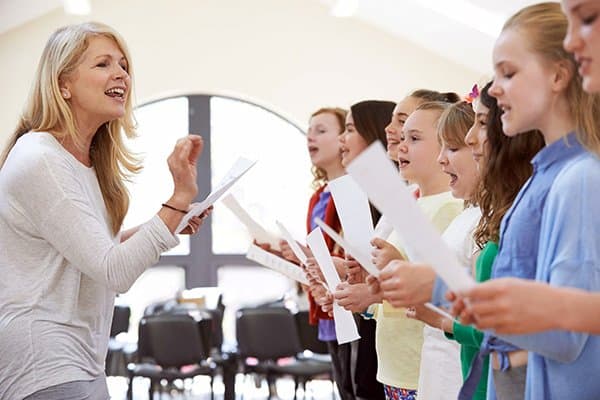
Kodály is a music program where children are taught to sing with perfect pitch and without any musical accompaniment.
Music Programs that will Build Your Brain: Kodály
Kodály is a group music program that develops and strengthens the auditory cortex. It trains a child to sing with perfect pitch without the aid of an instrument. It’s called solfege and it takes practice. While singing children learn certain hand movements called Curwen that reinforce learning.
Kodály helps children with
- memory skills as they learn different songs with different rhythms
- aural or listening skills as they listen to the varying pitch, rhythm, and harmony of a multitude of songs
- Curwen involves hand movements and strengthens the motor areas of the brain
Music Programs that will Build Your Brain: Suzuki
Suzuki targets the auditory cortex as your child is required to carefully listen in order to imitate what he/she hears.
It was founded by Shinichi Suzuki in Japan. His approach to teaching music is based on how children learn a language. First, they listen to the sounds (auditory) and then they try to imitate those sounds. Eventually, they mimic words, then phrases, and finally whole sentences.
Using this same method in music, Suzuki students first listen to a note, then they imitate that. The process is repeated with a musical phrase and finally an entire piece. With patience and encouragement, parents and teachers teach the child to play the violin, cello, viola, flute, or piano. Each step is mastered with constant repetition.
Brain-builder #2: Visual/Spatial Cortex
Music strengthens the visual/spatial areas of the brain. Being able to visually see and visually perceive our world is very important for learning and is connected to:
- accurately learning to read (visual perception)
- giving and understanding directions (visual perception)
- integrating visual information with other senses
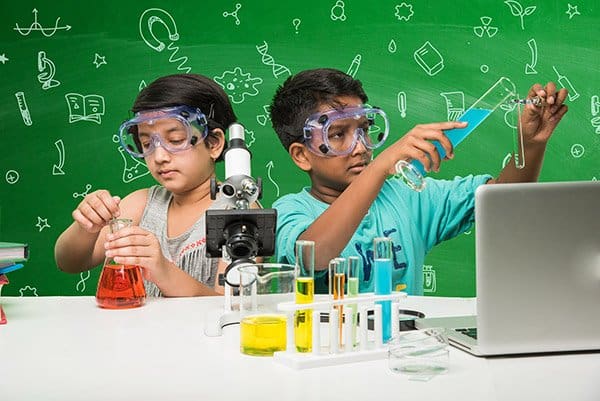
Music strengthens the visual/spatial areas of the brain. Kids who have strong visual/spatial areas do well in math and science.
Studies show that when your child learns a musical instrument it primes, prepares, and develops the spatial areas of the brain in such a way that your child is able to understand STEM subjects: science, technology, engineering, and math more easily.
Educators are now calling it: STEAM for Science, Technology, Engineering, Arts, and Math–because they are realizing the importance of music and the arts on brain development.
Music Programs that will Build Your Brain & Target Visual/Spatial Learning: Anybody Can Play Piano & Let’s Play Music
These two programs are amazing for building the visual/spatial cortex as well as the auditory and motor cortices.
Music Programs that will Build Your Brain: Anybody Can Play Piano
This music program teaches young children to read music. Developed by Karla Hastings Crossett a conservatory-trained musician with a background in languages, she devised this music method that parallels language so that reading skills are not needed…only speech.
Crossett’s music program uses an app, a tablet, or a touch-screen computer. The app works with a midi keyboard or controller and the child can use the app independently.
The program uses finger colors by matching the colors on your child’s fingers to the colors on the keyboard. Memorization skills are built as your child memorizes colors, notes, and keys on the keyboard.
Singing, clapping, tapping, waving, pointing, and moving (visual and motor development) are also included.
Check out the Anybody Can Play Piano website for additional information.
Click on my Facebook Live interview with Karla here.
Music Programs that will Build Your Brain: “Let’s Play Music”
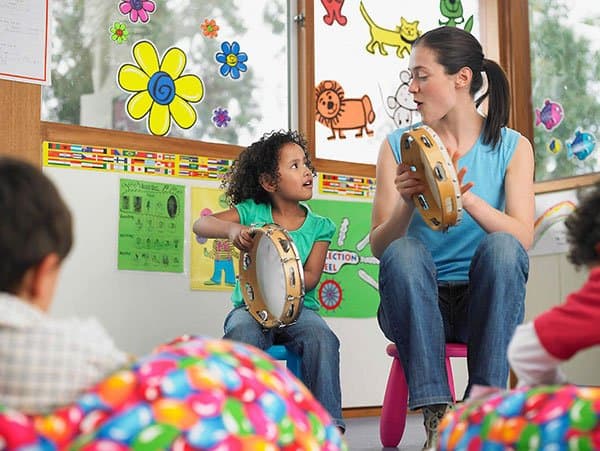
Let’s Play Music uses the concepts found in Orff-Schulwerk, Dalcroze, and Kodály. It introduces the child between the ages of birth through seven to music, movement, and singing.
“Let’s Play Music” is an international program and is the brainchild of music education major, Shelle Soelberg.
Using the concepts found in Orff-Schulwerk, Dalcroze, and Kodaly, this outstanding program will introduce your child between the ages of birth through seven to music, movement, and singing. It’s organized into three sequential years:
The first year incorporates games, songs, and tone bells to teach staff awareness and rhythm reading skills. In the second year, your child will transfer these skills to playing the piano, where he/she will learn chord notation, intervals, and harmonic improvisation.
By the end of the third year, your child will be playing the piano at level one or two, transposing the music, composing his/her own music, and sight-reading music, and is prepared to excel in further private piano instruction.
Recently, “Sound Beginnings” was added to the curriculum. The program, for children ages birth to four, includes singing, movement, games, stories, and activities.
Four of our grandchildren have been involved with this program for several years–it is the most outstanding comprehensive-sequential music program in the world. Check out their website here.
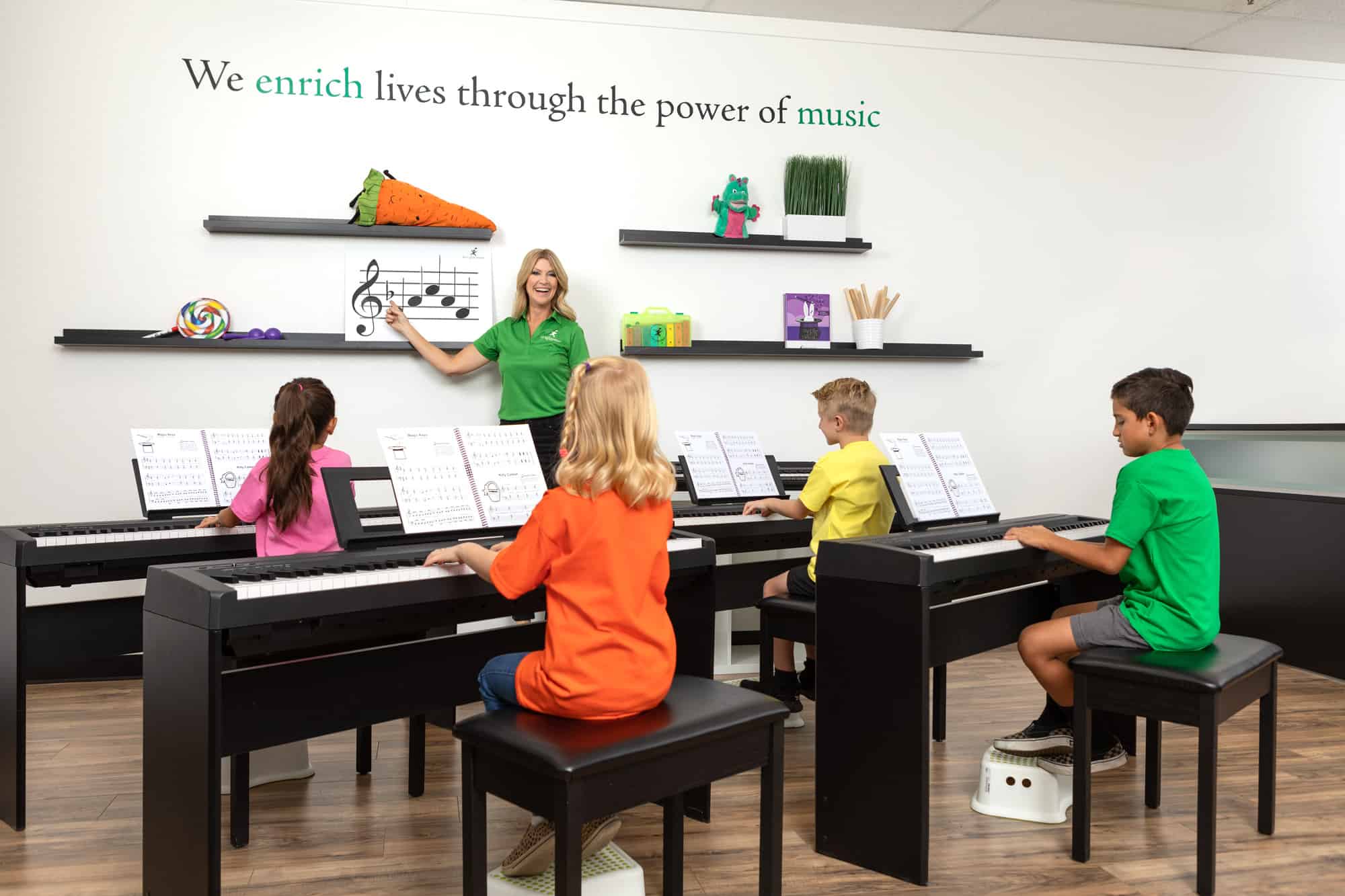
“Let’s Play Music” is an excellent music program that prepares kids for private lessons and builds the entire brain.
Brain-builder #3: Motor Cortex
Learning a musical instrument develops the motor areas of our brain—which is important for the development and organization of the entire neurological system. It also helps a child with
- listening
- memory skills
Here’s how:
When your children learn to play any musical instrument, they are using their hands and/or feet—which all develop the motor areas of the brain. When your young child pounds on rhythm instruments, claps her hands, stamps her feet, snaps her fingers or marches around the room she is using the motor areas of her brain. All these activities organize the brain; help the child to remain focused and increase memorization skills as they learn patterning and sequencing.
These specific body movements are found in the Dalcroze and Orff-Schulwerk programs.
Music Programs that will Build Your Brain & Target Motor Learning: Dalcroze & Orff-Schulwerk
Here are two programs that target motor learning:
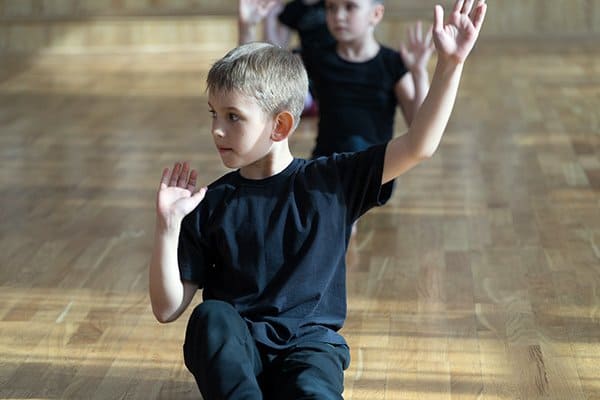
Dalcroze incorporates the use of specific movements called eurhythmics. The body is literally trained as an instrument.
Music Programs that will Build Your Brain: Dalcroze
Dalcroze was started in Switzerland by Emile Jaques-Dalcroze.
It’s a form of dancing that uses specific movements called eurhythmics. Children move their bodies rhythmically to the beat of the music. The body literally becomes an instrument and is trained as an instrument. Attention, concentration, and memory are required.
Dalcroze will teach your child to understand, follow, and repeat complex rhythms.
When your child hears the music, she moves her body in sync with the rhythms. By merging the sense of seeing, hearing, feeling, and moving to the music, she enjoys a complete musical experience. Many different senses come together in the Dalcroze experience: seeing, hearing, feeling, and moving.
Dancing and moving to the music, marching, singing, whistling melodies, and humming tunes all boost a child’s language, listening, and motor skills. They also help develop physical coordination, timing, and memory.
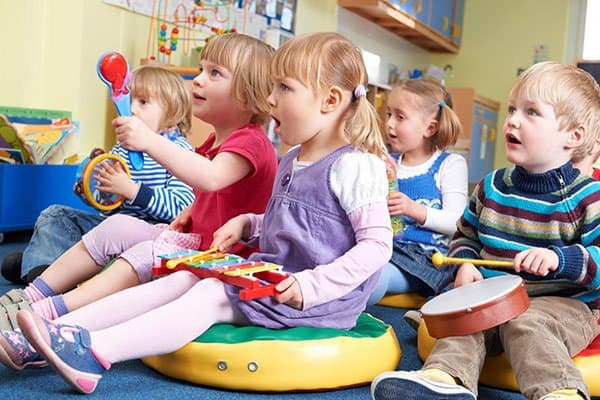
Orff-Schulwerk is a program that helps children with a sense of rhythm and timing and builds the motor areas of the brain
Music Programs that will Build Your Brain: Orff-Schulwerk
Orff-Schulwerk was started by a German composer, Carl Orff, and his associate, Hunild Keetman. Orff’s philosophy is, “Out of movement, music; out of music, movement.” The four body movements that make up the Orff experience are:
- clapping
- stamping
- patting the hands on the lap
- finger-snapping
Through play activities and the use of rhythm instruments such as drums, sticks, blocks, and bells, your children learn music patterns and how to keep a beat. Orff’s melody instruments include wooden xylophones and metal glockenspiels (glockenspiel means “bell play” in German).
This method is a group experience, and your children learn to be team participants through songs, games, rhymes, and dances.
Enroll Your Kids In Music Lessons
You now have several choices: enroll your child in traditional private music lessons or enroll your child in one or more of the programs discussed.
You can access the 2-minute video here
Do you have your children enrolled in a music program that you love and your children love? Please share in the comment section below.
Want to remember this post? Post, “6 Powerful Music Programs that Will Build Your Brain” to your favorite Pinterest Board
FAQ’s: Music Programs that Build Your Brain
How does music help the brain develop?
Involvement in music (meaning music lessons) helps to simultaneously exercise these areas of the brain: motor, visual/spatial, and auditory. All of these areas of the brain are directly related to a child’s ability to:
- math
- reading
- paying attention
- listening
- understand speech and language
- learn vocabulary words
- memory skills
- understand directions
- integrating visual information with other senses
- and much more
What are 3 ways music benefits the brain?
When a child, teen, or adult is involved with learning music, (specifically learning a musical instrument) their brain is benefited in these 3 areas which hugely impacts learning:
- Auditory (involved with reading, listening, understanding speech & language, etc)
- Visual/Spatial (accurately learning to read, giving & understanding directions, integrating visual information with the other senses)
- Motor (listening and memory skills)
What music helps the brain?
Research shows that listening to certain pieces of classical music changes the way the brain processes allowing the child, teen, or adult to absorb, retain, and retrieve information—all components of memory.
It also has been found to help children remain calm, lower anxiety levels, and helps them to learn easier and better.
Can music make you smarter?
Yes, music can make you smarter, but the best way for this to happen is to actually study a musical instrument. The process of learning a musical instrument exercises the brain in a way that nothing else can or does.
Learning a musical instrument exercises the 3 areas of the brain responsible for learning—visual/spatial, motor, and auditory.
Does listening to music raise your IQ?
It depends on the music. Studies in 1994 showed that listening to a certain piece of classical music increased spatial IQ by 10 points. But it was only a temporary effect.
If you want to raise your IQ through music you need to do more than listen to classical music—you need to learn a musical instrument.
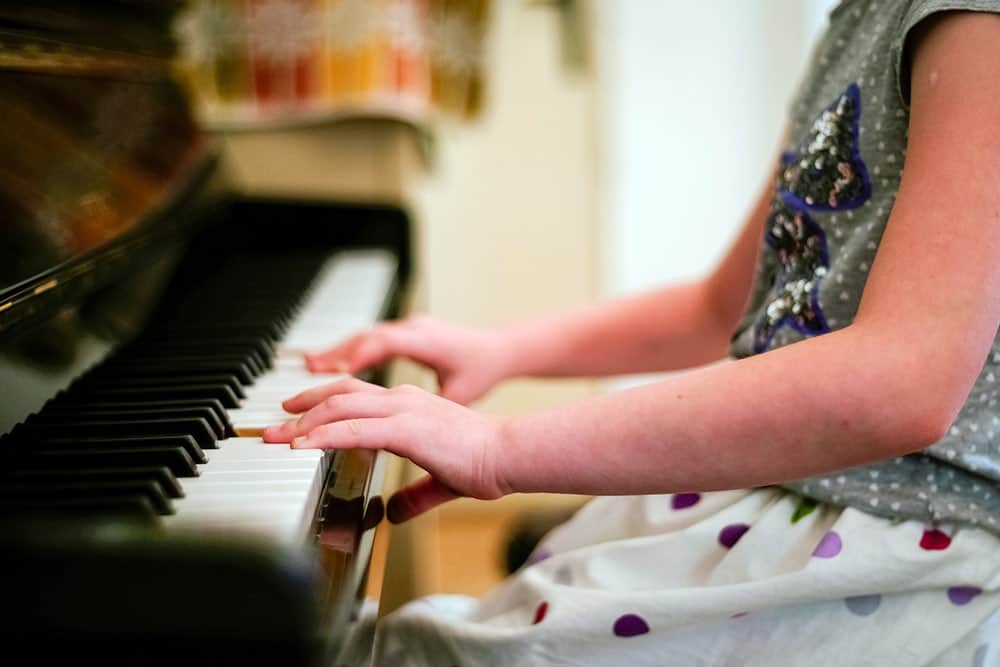
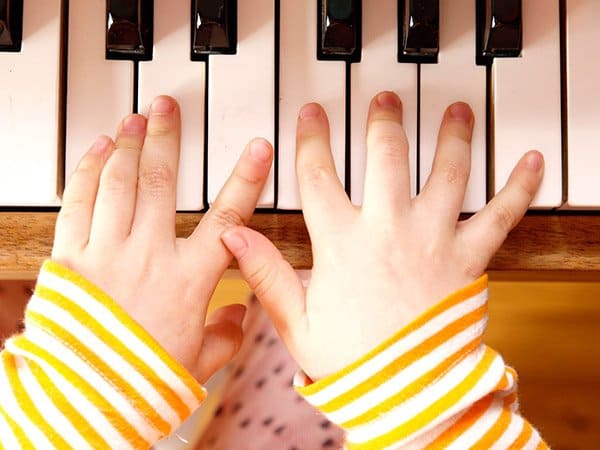
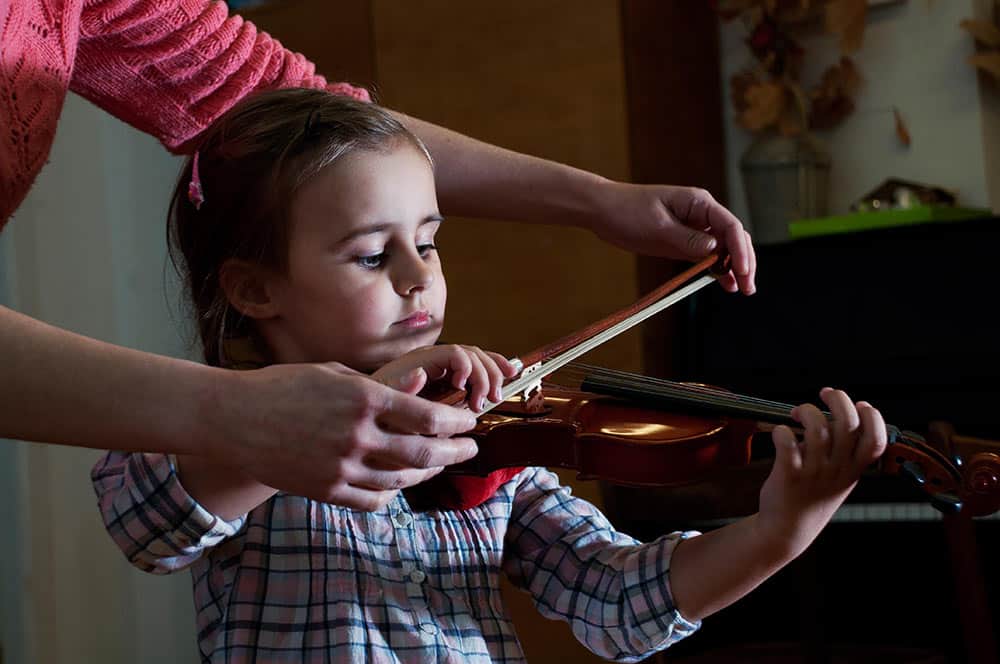
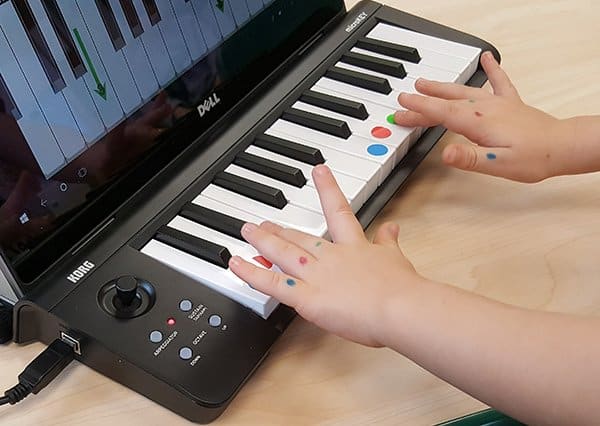
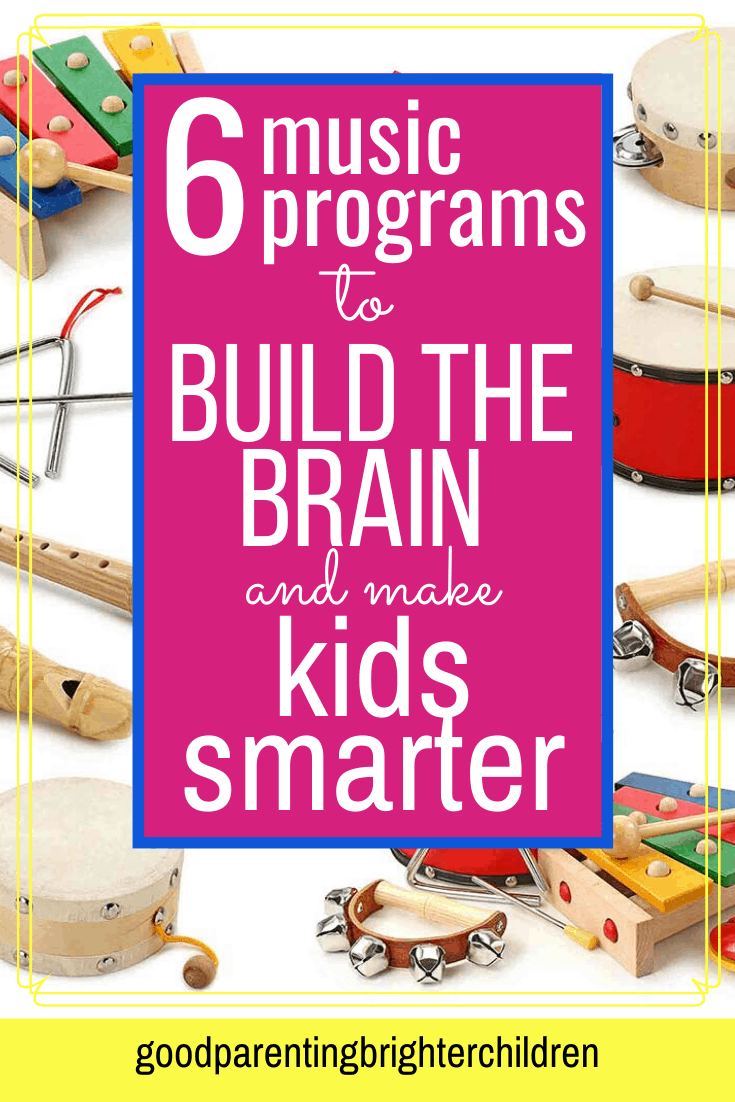
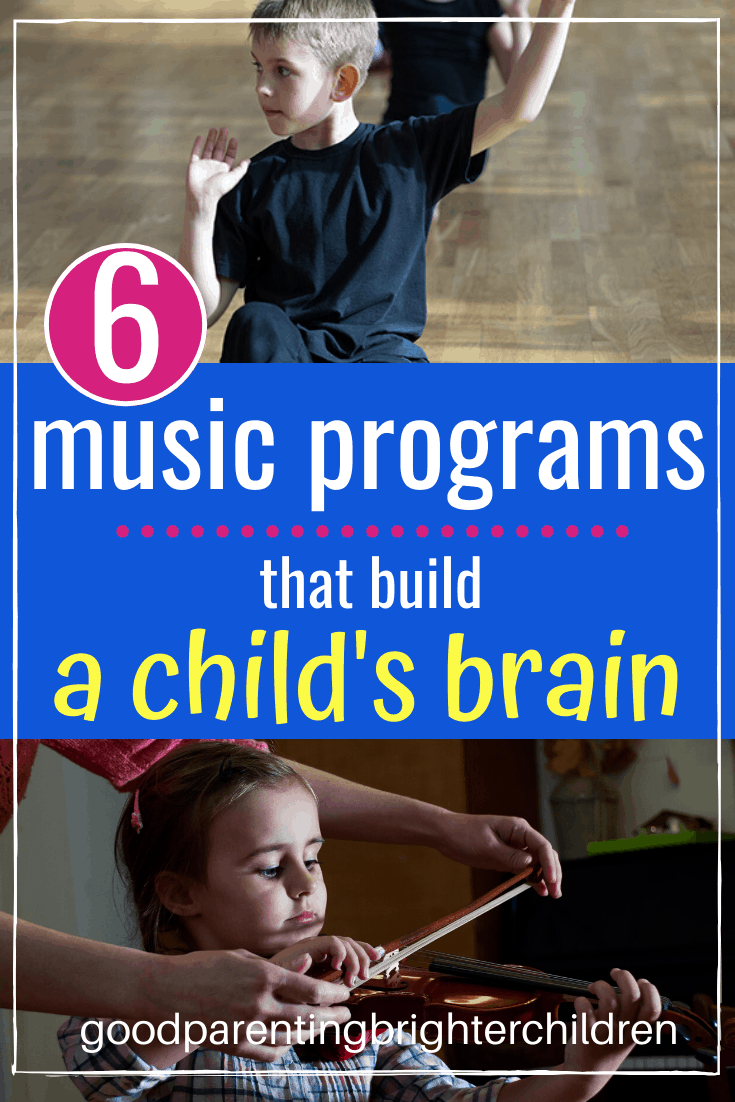
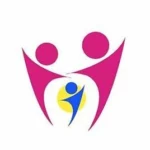

Do you have any thoughts on the Prodigies program and how it may compare? They say they combine a few techniques and include physical movement, pitch, etc.
I don’t know anything about the Prodigies program–but if it includes movement, pitch, etc., like you are saying, I’m sure it is an excellent program. One thing I would watch for is if the program has goals for each grade level or age level. Meaning–that each program builds on the next program. That’s why I like “Let’s Play Music”–it’s very goal-oriented with the music that is provided at each level and each level building on the next. Thank you for sharing!
I was just reading some of the other comments and noticed you mentioned a book, “It’s never too late”. I’ve always wanted to play an instrument but thought it was a lost cause at this point in my life. I can’t believe at 50 years old someone was able to pick up an instrument and be so successful. I really need to think about learning to play something. Thanks for your knowledge, Sharlene.
When you look back in history–many people started “hobbies” in their later lives and became proficient and some even famous–Grandma Moses, Mary Stoneman Douglas, John Holt and others. I think it’s rather remarkable that we ARE able to learn well into “old age.” You are still very young Tiffany–you should start learning an instrument–Zach would love it!
I LOVED this BLOG! It makes me wish I could be young again, and experience all of these programs and methods. I taught myself how to play the piano and organ. I also played the alto sax in band. I learned guitar basics and also the ukulele. But had zero training, and never really mastered anything! Wish I could start again! I have always had music in my soul!!! We grow too old too soon! This is wonderful info for young people to use! I only hope we can continue learning in HEAVEN! Parents, encourage your children and push yourselves to never give up!
Cheryl–thank you for your comments–loved what you had to say. However, here are a couple of things: if you learned to play all those instruments without training, then you definitely have music in your soul! That’s impressive! And you obviously have a strong auditory cortex to have done that. But, there is an interesting book you should read, “It’s Never Too Late,” by John Holt. He started playing the cello at age 50 and went on to join a chamber orchestra. With your musical talent–you need to continue. Take lessons, join a band, etc. Music keeps the mind young and the heart pumping. I wish I could play the instruments you do–that’s truly amazing!
This is the best “short story” on learning/teaching music to/for children that I have ever come across!
Thank you, Sharlene (and husband Mark) for the myriad creative ways you put your messages “out
there”, from which others can learn. As a mom, grandmother and great-grandmother I feel strongly
that each moment we interact with our children in positive ways counts toward their [respective]
future successes.
THIS IS TRULY A MONUMENTAL TASK FOR YOU, HOWEVER YOUR ABILITY TO MAKE PARENTS, TEACHERS AND OTHER INTERESTED PEOPLE AWARE OF SIMPLE PROGRAMS AND IDEAS–WILL EFFECTIVELY MOTIVATE FAMILIES AND SCHOOLROOMS, ONE-BY-ONE, TO PRODUCE MORE BALANCE, HAPPINESS, AND MORE FULFILLMENT. Thank you again and again!
IN LIVES OF CHILDREN, EVERYWHERE. I salute your giving heart(s) and your smart brain(s)!
Thank you, Antoinette, for your kind and supportive comments! You, of anyone, understands the importance of music in building a child in so many different ways. Thank YOU and Bob for all your tireless efforts in bringing music to children all over the United States!